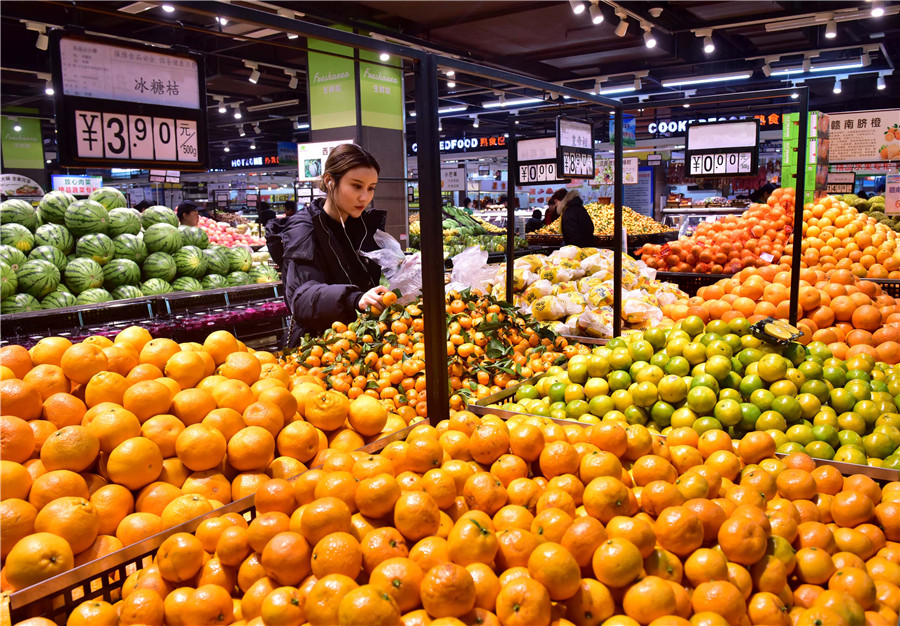Retail sales of consumer goods set to top $5.73 trillion in China


China's retail sales of consumer goods is expected to exceed 40 trillion yuan ($5.73 trillion) for the first time this year, maintaining its pillar position in the country's economic growth for six consecutive years, officials from the Ministry of Commerce said on Monday.
Total retail sales of consumer goods is likely to reach 41.1 trillion yuan this year, up 8 percent on a year-on-year basis, said Wang Bin, deputy director-general of the ministry's department of market operations and consumption promotion.
Thanks to emerging business models such as fresh food and broadcasting-themed e-commerce, as well as the expansion of global firms including the US warehouse club chain Costco and German supermarket chain Aldi in China this year, the country's online retail sales amounted to 7.6 trillion yuan between January and November, up 19.7 percent from same period a year earlier.
The strong growth has also been driven by the diversified import channels, service sector, daily living expenses, the nighttime economy and strong purchasing power from China's central and western regions this year, Wang said at a media briefing during the ministry's year-end meeting from Sunday to Monday.
Boosted by cross-industry cooperation, digital tools and e-commerce related business models, Wang said China's booming consumption sector has created a large number of jobs and built better infrastructure network in the country's lower-tier cities, counties and rural areas.
For instance, the number of deliverymen at Meituan-Dianping, one of the country's largest on-demand service platforms by sales revenue, surged from 2.7 million in 2018 to 4 million this year.
"With digitalization being one of the trends of China's takeout business, the delivery options have also expanded. In addition to food and beverage, orders for flowers, green plants, cosmetics and daily necessities have grown in recent years," said Hu Jianping, deputy director-general at the ministry's department of market system development.
She said that meeting the daily needs and festive demands is a new consumption trend across China. Consumption potential can be further unleashed by increasing residential incomes and improving product quality to build a strong domestic market.
Though many parts of the world are confronting downward economic pressure, a strong domestic spending power with many emerging service and business modes is key to attracting foreign direct investment in the long term, said Zong Changqing, director-general of the department of foreign investment administration development at the Ministry of Commerce.
For the next step, the ministry will accelerate the upgrading of pedestrian streets in the country's major cities, and further release consumption potential in the country's rural areas via e-commerce, modern agriculture, tourism projects and infrastructure development.
Apart from building a sound domestic consumption environment, Xian Guoyi, director-general at the ministry's department of trade in services and commercial services, said the government will study and formulate a negative list for cross-border service trade in 2020.
He said China will expand service exports, cultivate new growth points in service trade and further enlarge the global market for service trade next year, as well as import more quality services to meet domestic demand.
These moves target short-and long-term consumption, and focus on stabilizing products such as passenger vehicles and digital goods, while also cultivating new drivers from service sector and 5G technology, said Ma Yu, a researcher at the Beijing-based Chinese Academy of International Trade and Economic Cooperation.




































